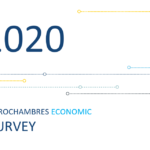Foreign Direct Investments have a positive impact on Romania’s export performance, according do a study published by The European Bank for Reconstruction and Development (EBRD) at the end of 2019 year. When policy makers are looking for effective and actionable policies aimed at quality upgrading among domestic exporters, they should consider FDI promotion, and, in particular, efforts to bring foreign investors into industries which are likely to supply inputs to Romanian firms, the paper outlines.
Based on a panel of all Romanian firms with more than 20 employees, matched with detailed customs data, the study suggests that FDI inflows can stimulate domestic firms to upgrade the quality of their exports. Basically, the FDI-export linkage shows that investment promotion leads to more inflows of FDI in Romania, which in turn allow the country to upgrade its export basket.
On the overall terms, the FDI stock as of December 31, 2018 amounted to EUR 81.1 billion, according to data released by The National Bank of Romania (BNR). Last year, the pace of growth has slowed: FDI into Romania increased by 1.1% year-on-year in the first ten months of 2019, to 4.822 billion euro ($5.373 billion).
The pace of growth is similar for exports as compared to FDI evolution. Romania’s exports of goods increased by 1.7% percent last year in the first ten months to EUR 58.2 billion, according to National Institute of Statistics and the forecasts show the Romanian economy is headed for a historic record of exports in 2019, going beyond the EUR 70 billion threshold triggered by car and automotive construction, manufacturing, agriculture and software.
The main problem of the Romanian economy in relation to the export status is that local companies are responsible for 30% of total exports, according to data from a study made by the Bucharest University of Economic Studies (ASE) and the Foreign Investors Council (FIC). The majority of exports (70%) are made by multinationals. Foreign companies make the most important contribution to Romanian exports, because they are, in general, multinational companies with more global know-how than local companies.
FDI-export linkage in Romania
There are several reasons why Foreign Direct Investments could contribute to improve the Romania’s exports structure. First, products exported by multinationals may have higher unit values due to multinationals’ superior technology and marketing techniques. Second, Romanian firms in the same industry may learn by observing what multinationals produce and export and in this way upgrade the quality of their own exports. Third, “productivity spillovers to supplying firms may result in suppliers exporting higher-value products”, describes a study from University of Oxford.
Romania is an interesting country for studying the effect of FDI on manufacturing firms for at least three reasons, according to EBRD study. First, manufacturing plays a comparatively large role in the Romanian economy. In fact, the share of manufacturing value added in Romanian GDP is at 30% the largest in the European Union (EU). Secondly, Romania entered the European Union in 2007, and its entry was accompanied by the highest inflows of FDI in the country’s modern history.
The third reason for Romania being an interesting case to study is that with the GDP per capita (adjusted for the purchasing power parity) at only 36% of the EU average, it had a large potential for improvement of its manufacturing performance.
As investment promotion leads to higher FDI inflows, based on the conclusions of EBRD paper, we can argue that information on sector targeted by national agencies can be used to both attract new foreign investors and also to foster the internationalisation of Romanian companies. Consequently, the government should take further marketing measures to present the climate, benefits and investment incentives available in Romania, and work to develop investment promotion laws and programs to increase its competitiveness in attracting export-oriented investments. This approach to investment promotion includes, first and foremost, the correlation of export incentive policies with those of attracting foreign investments. Secondly, it is advisable to coordinate the policy of attracting foreign investments with the one that stimulates the internationalisation of Romanian companies, for example, by joining Invest Romania division with a future and desired specialised agency in foreign trade.







